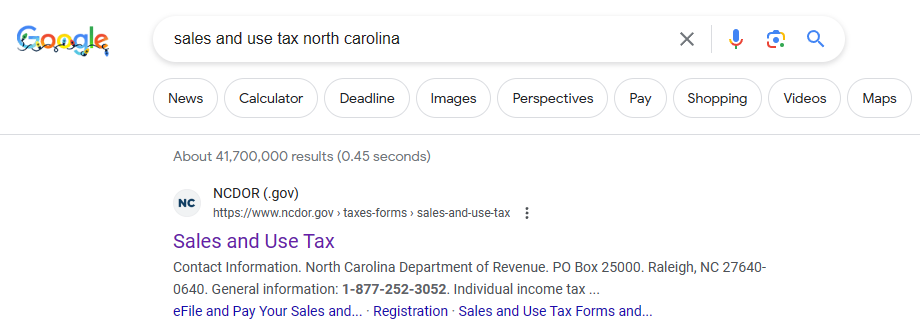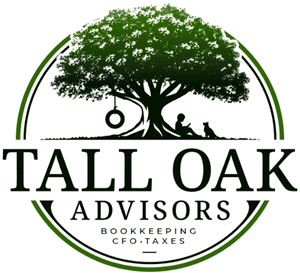If you are an Amazon FBA arbitrage reseller, you’ve probably paid sales tax on your inventory purchases.
This drains your margin!
As a reseller, you are not legally required to pay sales taxes on the inventory you purchase for resale. When you purchase from normal wholesale suppliers, they will always ask you for a resale certificate. By default, they assume you are reselling the items.
When you are sourcing from retailers, it becomes a little more of a challenge. By default, they assume you are a consumer and are not reselling the items. Since that’s the case, they will charge you sales tax, even though you are not legally required to do so.
While the easiest way is to have items shipped to states that don’t have sales tax, this might not always be feasible. So, let’s dive into the process of getting sales tax exemption for resale items.
Table of Contents
Step 1: Obtain a Sales and Use Tax License
The first thing you need to do is get a sales and use tax license from your specific state. If you’re selling only on Amazon and eBay, you may not need a sales and use tax license. But, to save on sales taxes, you need to have it.
To obtain the license, simply search for “sales and use tax” along with your state’s name on Google.

You will find the official website where you can open an account and follow the instructions provided.
- If you are doing retail arbitrage, you will need a separate license for each state you plan to buy from.
- If you are doing online arbitrage, you will need a separate license for each state you are delivering your products to.
Step 2: Utilize the Sales Tax ID Number
Once you have obtained your sales and use tax license, you can start utilizing the sales tax ID number to save those sweet sales tax dollars.
Some retailers will accept your resale form along with the sales tax ID number.
Option A: Retailers Accepting Resale Licenses
If a retailer accepts resale licenses, you can use the sales tax ID number and the resale form to become sales tax exempt. You will need to fill out a multi-jurisdiction resale form, which is a form accepted by almost every state. This form allows you to include the sales tax ID numbers for multiple states, such as New York and New Jersey, on a single document. Fill out this form for every retailer you plan to buy from.
Some companies have corporate departments that handle sales tax exemption, and others are handled at the store level. You can ask store-level employees or call a corporate customer care number and ask about the tax exemption process for that company. In many cases, they will have you fax or email the multi-jurisdiction resale form to their corporate offers. Others will have you present it to the employee at the store level. Be prepared for people not to have a clue what the process is – you may have to talk to multiple people until you find someone who understands it!
Option B: Requesting Sales Tax Refund
In some states, such as Virginia, New Jersey, Colorado, Ohio, North Carolina, California, Maryland, and Texas, you can request a refund for the sales tax paid on resale items. However, the process and eligibility criteria vary by state. You must fill out a form with the state and provide receipts for each purchase you made. The process can be time-consuming and may take a few months to receive the refund. Keep in mind that not all states offer this option, so make sure to research the specific state’s requirements.
Do I Need a Sales and Use Tax License?
This depends if you have a physical or economic nexus in the state. This also depends if you are only selling on Marketplaces like Amazon, eBay, or Etsy, or selling on your website like Shopify.
- Only Sell on Marketplaces:
- Each state’s laws require anyone selling items in a state that has physical nexus in it (which you do, if you live there) by default. These are the old-school rules that have been around for eons. The marketplace facilitator laws enacted by each state typically define what needs to happen with remote sellers and marketplace facilitators (Amazon). SOME states have specific laws stating whether certain conditions are necessary NOT to have to file. This means that you should file unless the state you are in specifically says you don’t need to.
- States that we have verified have laws stating you don’t need to file if you are a marketplace-only seller as of January 2024: VA, CO, NC, CA, MD, MI, WI.
- If you are not in these states, it is highly recommended that you request a sales tax permit from the state you reside in.
- If you reach economic nexus levels for various states, you may be required to open a sales tax permit in states other than the one you reside in.
- Sell on Shopify or Locally:
- You will need a sales tax permit.
Ongoing Obligations
Once you have opened a sales tax account, it’s important to fulfill your ongoing obligations.
It is relatively easy to do it yourself for free. Just ensure you stay on top of your filings to avoid problems with the states.
YouTube Video
Take Control of Your Finances Today!
Whether you’re a Reseller (Wholesale, Retail Arbitrage, Online Arbitrage, Dropshipping) or a Brand Owner, managing finances is key to your success. We support eCommerce businesses across major platforms like Amazon, Shopify, eBay, Walmart, Etsy, BigCommerce, and beyond.
See if you qualify for a free strategy session with our team to learn how Tall Oak Advisors can streamline your bookkeeping and ensure accurate tax preparation for your business.
Need a quick quote?
Or explore our range of free resources crafted specifically for eCommerce sellers:
- 7 Profit Crushing Mistakes That Will Destroy Your eCommerce Business
- Business Tax Worksheet
- Frequently Asked Questions About Taxes and Bookkeeping
- Tax Write-Offs Every Amazon and Shopify Seller Should Know
Take the first step toward a stronger financial future and position your business for long-term success.
12 Comments
Leave A Comment
If you are an Amazon FBA arbitrage reseller, you’ve probably paid sales tax on your inventory purchases.
This drains your margin!
As a reseller, you are not legally required to pay sales taxes on the inventory you purchase for resale. When you purchase from normal wholesale suppliers, they will always ask you for a resale certificate. By default, they assume you are reselling the items.
When you are sourcing from retailers, it becomes a little more of a challenge. By default, they assume you are a consumer and are not reselling the items. Since that’s the case, they will charge you sales tax, even though you are not legally required to do so.
While the easiest way is to have items shipped to states that don’t have sales tax, this might not always be feasible. So, let’s dive into the process of getting sales tax exemption for resale items.
Table of Contents
Step 1: Obtain a Sales and Use Tax License
The first thing you need to do is get a sales and use tax license from your specific state. If you’re selling only on Amazon and eBay, you may not need a sales and use tax license. But, to save on sales taxes, you need to have it.
To obtain the license, simply search for “sales and use tax” along with your state’s name on Google.

You will find the official website where you can open an account and follow the instructions provided.
- If you are doing retail arbitrage, you will need a separate license for each state you plan to buy from.
- If you are doing online arbitrage, you will need a separate license for each state you are delivering your products to.
Step 2: Utilize the Sales Tax ID Number
Once you have obtained your sales and use tax license, you can start utilizing the sales tax ID number to save those sweet sales tax dollars.
Some retailers will accept your resale form along with the sales tax ID number.
Option A: Retailers Accepting Resale Licenses
If a retailer accepts resale licenses, you can use the sales tax ID number and the resale form to become sales tax exempt. You will need to fill out a multi-jurisdiction resale form, which is a form accepted by almost every state. This form allows you to include the sales tax ID numbers for multiple states, such as New York and New Jersey, on a single document. Fill out this form for every retailer you plan to buy from.
Some companies have corporate departments that handle sales tax exemption, and others are handled at the store level. You can ask store-level employees or call a corporate customer care number and ask about the tax exemption process for that company. In many cases, they will have you fax or email the multi-jurisdiction resale form to their corporate offers. Others will have you present it to the employee at the store level. Be prepared for people not to have a clue what the process is – you may have to talk to multiple people until you find someone who understands it!
Option B: Requesting Sales Tax Refund
In some states, such as Virginia, New Jersey, Colorado, Ohio, North Carolina, California, Maryland, and Texas, you can request a refund for the sales tax paid on resale items. However, the process and eligibility criteria vary by state. You must fill out a form with the state and provide receipts for each purchase you made. The process can be time-consuming and may take a few months to receive the refund. Keep in mind that not all states offer this option, so make sure to research the specific state’s requirements.
Do I Need a Sales and Use Tax License?
This depends if you have a physical or economic nexus in the state. This also depends if you are only selling on Marketplaces like Amazon, eBay, or Etsy, or selling on your website like Shopify.
- Only Sell on Marketplaces:
- Each state’s laws require anyone selling items in a state that has physical nexus in it (which you do, if you live there) by default. These are the old-school rules that have been around for eons. The marketplace facilitator laws enacted by each state typically define what needs to happen with remote sellers and marketplace facilitators (Amazon). SOME states have specific laws stating whether certain conditions are necessary NOT to have to file. This means that you should file unless the state you are in specifically says you don’t need to.
- States that we have verified have laws stating you don’t need to file if you are a marketplace-only seller as of January 2024: VA, CO, NC, CA, MD, MI, WI.
- If you are not in these states, it is highly recommended that you request a sales tax permit from the state you reside in.
- If you reach economic nexus levels for various states, you may be required to open a sales tax permit in states other than the one you reside in.
- Sell on Shopify or Locally:
- You will need a sales tax permit.
Ongoing Obligations
Once you have opened a sales tax account, it’s important to fulfill your ongoing obligations.
It is relatively easy to do it yourself for free. Just ensure you stay on top of your filings to avoid problems with the states.
YouTube Video
Take Control of Your Finances Today!
Whether you’re a Reseller (Wholesale, Retail Arbitrage, Online Arbitrage, Dropshipping) or a Brand Owner, managing finances is key to your success. We support eCommerce businesses across major platforms like Amazon, Shopify, eBay, Walmart, Etsy, BigCommerce, and beyond.
See if you qualify for a free strategy session with our team to learn how Tall Oak Advisors can streamline your bookkeeping and ensure accurate tax preparation for your business.
Need a quick quote?
Or explore our range of free resources crafted specifically for eCommerce sellers:
- 7 Profit Crushing Mistakes That Will Destroy Your eCommerce Business
- Business Tax Worksheet
- Frequently Asked Questions About Taxes and Bookkeeping
- Tax Write-Offs Every Amazon and Shopify Seller Should Know
Take the first step toward a stronger financial future and position your business for long-term success.
12 Comments
-
hey chris potter, i got a question bout that step 2 on using the sales tax ID, how quick is the process for opting for option B when it comes to getting a sales tax refund?
-
Refund processing times can vary by state. Usually, it takes a few weeks to several months.
-
-
i had no clue we needed a license just to sell stuff. thought it was simpler lol.
-
Ah, the joys of bureaucracy, gotta love filling out forms to sell something.
-
This part about having ongoing obligations after getting a sales and use tax license is something I hadn’t considered much. It’s pretty important for anyone setting up a side hustle to know about this, so they don’t get caught out by audits or late fees. Does anyone know if there’s a simple checklist or something to keep track of all these obligations?
-
Great point! A checklist would be super helpful. I usually set reminders on my phone for periodic tasks like this.
-
There are some apps that can help with tracking these things. Might be worth looking into.
-
-
so if i get this right we need a tax license even if we are just selling small things online from home how does one even start to figure out all these taxes and stuff because it seems really complicated and im not sure im smart enough to handle all that without messing something up




hey chris potter, i got a question bout that step 2 on using the sales tax ID, how quick is the process for opting for option B when it comes to getting a sales tax refund?
Refund processing times can vary by state. Usually, it takes a few weeks to several months.
It really depends on the state. Some of them take forever (I’ve heard upwards of 6 months), and some of them are a few weeks.
i had no clue we needed a license just to sell stuff. thought it was simpler lol.
Well, it’s not really a license. It’s a sales tax permit. But yeah…nothing is simple!
Ah, the joys of bureaucracy, gotta love filling out forms to sell something.
This part about having ongoing obligations after getting a sales and use tax license is something I hadn’t considered much. It’s pretty important for anyone setting up a side hustle to know about this, so they don’t get caught out by audits or late fees. Does anyone know if there’s a simple checklist or something to keep track of all these obligations?
Great point! A checklist would be super helpful. I usually set reminders on my phone for periodic tasks like this.
Really it’s smart to just set reminders in a task manager or on your phone. Some states do send out reminders too.
There are some apps that can help with tracking these things. Might be worth looking into.
so if i get this right we need a tax license even if we are just selling small things online from home how does one even start to figure out all these taxes and stuff because it seems really complicated and im not sure im smart enough to handle all that without messing something up
Well, it really just depends on your state and where you are selling. What are you doing?